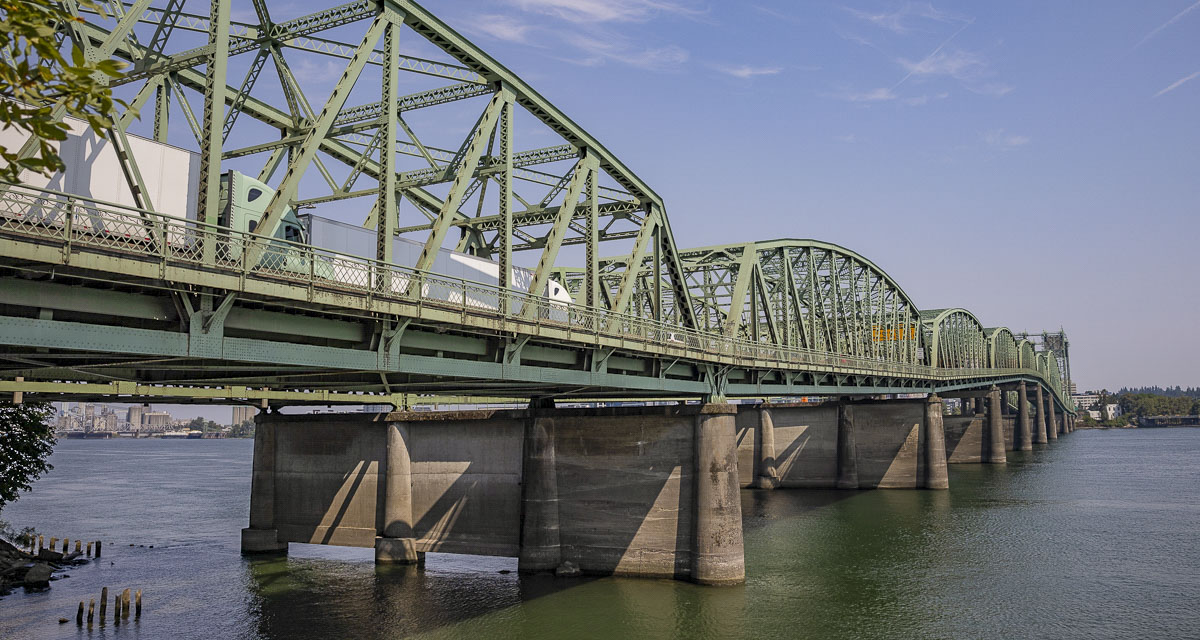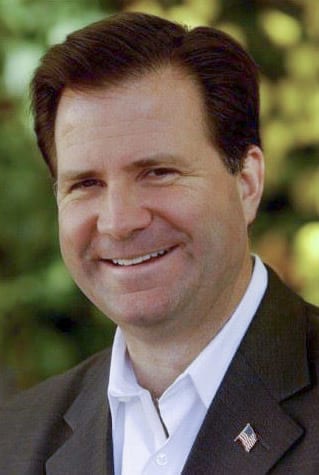
Radio host Lars Larson grills C-TRAN Board member and Vancouver City Council member Bart Hansen for his position on the issue
Ken Vance, editor
Clark County Today
Vancouver City Council member and C-TRAN board member Bart Hansen joined the Lars Larson Radio Show Friday (Jan. 3) to address the controversial proposal for Southwest Washington taxpayers to shoulder millions of dollars in costs for Oregon’s TriMet light rail extension into Vancouver.

TriMet, facing financial struggles, has requested $6.8 million annually from Washington taxpayers for operations and maintenance, as part of $21.8 million in shared costs. The Portland transit agency also seeks funding for 19 new rail cars for the proposed 1.83-mile extension of its Yellow Line into Vancouver. The extension makes up $2 billion of the cost for the project, which is currently at $7.5 billion and expected to climb with new estimates promised later in 2025.
Hansen expressed “sticker shock” over these demands, noting the high costs would burden Clark County residents without clear justification.
Larson criticized TriMet’s history of making inflated promises, such as exaggerated train frequencies, to secure funding. He called such practices deceptive and likened them to fraud. Hansen, a proponent of public transit, questioned whether these costs align with the best interests of C-TRAN riders, suggesting alternative uses for the money could better serve the community.
As the debate over light rail integration and the replacement of the I-5 Bridge continues, Hansen indicated he could not support the proposal in its current form, while Larson vowed to hold area leaders accountable for their decisions.
Washington state Representative-elect John Ley pointed out the following in his Dec. 31 opinion published by Clark County Today:
“In the summer of 2022, TriMet’s Board of Directors approved moving forward with the IBR and their Modified Locally Preferred Alternative (MLPA) with a set of conditions. One was that “new revenues” (taxes) come from both Oregon and Washington to pay for the Operations and Maintenance (O&M) of the included light rail extension into Vancouver. TriMet has never contributed towards C-TRAN O&M costs for bus service into Portland over the decades.
“Today, we know TriMet is asking for $21.8 million annual new taxes, with Washington on the hook for 45 percent of that, or $7.3 million “if” farebox recovery increases to 25 percent of operating costs. If passenger fares don’t increase, taxpayers would be asked to fund even more.
“The $21.8 million demanded is nearly six times current MAX light rail O&M costs on a per mile basis – $11.9 million per mile demanded versus $2.1 million actual per mile MAX operating costs.’’
Friday’s discussion between Larson and Hansen
The discussion between the two began with Larson providing context:
“Why is an Oregon transit agency that is currently losing money trying to soak Washington state taxpayers for tens of millions of dollars in costs for light rail?’’ Larson asked rhetorically. “Now, you might say, ‘well, Lars, how can any agency in one state reach across a state border and take money out of the pockets of taxpayers for an agency that doesn’t exist in the state of Washington?’ And there is an answer to that. Now, my view of this is that this is a failing transit agency. I’m talking about TriMet in this case, and Sound Transit (in the Seattle area) isn’t much better. But TriMet is saying ‘we’re losing money. We got to find somebody else to pay our bills for us. We’re going to reach across the river. We’re going to do that now.’’’

Larson challenged Hansen to “tell my audience that I’m wrong.’’
“It’s the sticker shock,’’ Hansen said. “We were told for so many years, I was told for so many years, that the operating cost of light rail was relatively inexpensive. It’s the capital cost that’ll get you in laying the rail down. And unfortunately, I got a bit of a sticker shock last year in a board meeting when I saw what they were looking to charge.’’
Larson then shared with Hansen that his recall was that the C-TRAN board had previously taken a position. That position was that TriMet does not subsidize express buses from Vancouver that are run by C-TRAN into Portland. So, Washington taxpayers shouldn’t pay any subsidy on the light rail extension into Vancouver.
“Yes,’’ Hansen answered, confirming Larson’s recall. “And then, in taking a look at this and the overall bridge project and saying, ‘let’s at least open the door to conversation and let’s see where it’ll go from there.’ That was at least my position on it. And I did vote yes. And when you take a look at what we’re looking at now, we’re looking at a different story. We’re looking at costs that are exorbitant, to say the least.’’
Larson then challenged Hansen to be specific about how much money TriMet officials are demanding from Southwest Washington taxpayers as part of the operations and maintenance costs?
“They were looking at about $6.8 million for just the light rail portion annually,’’ Hansen said.’’
Larson then asked where the $21.8 million figure came from?
“That’s the total, from how it’s been termed to meet Oregon and Washington,’’ Hansen said. “So the Oregon share in total.’’
Again, in an attempt to provide context to the discussion, Larson stated that “because its total operations and maintenance is about $120 million a year, and they’re turning around and saying to Vancouver, you need to pay millions of dollars of our costs because the light rail happens to stick just less than a mile into the state of Washington. So therefore, you’re on the hook to pay us millions.”
Hansen admitted that TriMet’s position “really threw me for a loop. I said, ‘look, it seems that this cost is so high.’’’
Larson then asked that if TriMet gets its light rail extension into Vancouver, if it was believable that there would be 10 trains an hour leaving Vancouver into the TriMet system as promised?
“I don’t think that’s very practical,’’ Hansen said. “Let’s say it’s a lofty goal.’’
Larson suggested to Hansen, “how about we say this: is it a lie?’’
That’s a bit much,’’ Hansen said.
Larson pointed out that TriMet has, over the last couple of decades, told the federal government it was going to have eight departures an hour on this (Yellow) line, and then they turned out to have three or four departures per hour.
“They lie to the federal government all the time,’’ Larson said. “I call it a lie.’’
Hansen said it comes down to one thing. “it’s not delivered upon.’’
Larson also raises the issue of TriMet officials requesting that taxpayers purchase 19 new light rail vehicles for the TriMet system as part of the I-5 Bridge replacement project.
“TriMet has a system with 100 miles of track,’’ Larson said. “They’re proposing to have less than one mile of it stick into the state of Washington. And then they turn to you and say, ‘we’ve got about 130-140 trains. We’d like you to buy us 19 new trains at an exaggerated cost. Is there any justification to have Clark County or taxpayers pay for 19 new light rail trains, most of which will never come into the state of Washington?”
“That’s the point we’re at right now, is they need to show us the math,’’ Hansen said. “For me, and I can’t speak for the others on the (C-TRAN) board or the Vancouver City Council, but that’s where I am.’’
How will Hansen vote?
Larson then asked Hansen that if he had to vote on the TriMet proposal today, would he say yes to the proposed funding package for Southwest Washington taxpayers?
“I’m not going to say yes to those costs. I’m not, by any means,’’ Hansen said. “This has to be something where we can show better service to the people in Clark County. Here’s the thing: we have several different areas that we could tax for this. And if you’re taxing and you’re paying an exorbitant amount for light rail, what could you have done with that money in your county?
“I am a fan of public transit,’’ Hansen said. “I use public transit, but at the same time, I have to ask myself: ‘what is in the best interest of the C-TRAN rider in Clark County?’’’
Larson then forced Hansen to be more specific. “The demand from TriMet — is that in the best interest, yes or no?”
“Right now, no. Not even close,’’ Hansen said.
Also read:
- Delays expected on Northwest 99th Street during water quality project constructionClark County will begin construction in July to install a stormwater filter vault on NW 99th Street. Drivers can expect delays, but lanes will remain open during the work.
- POLL: What’s the biggest concern you have with the current I-5 Bridge replacement plan?As costs rise and Oregon’s funding fails, concerns mount over the current I-5 Bridge replacement plan. Clark County Today asks readers: what’s your biggest concern?
- Plan ahead for ramp closures on I-5 near Ridgefield, July 8-9Travelers on northbound I-5 near Ridgefield should prepare for ramp closures July 8–9 as WSDOT crews conduct final testing of new wrong-way driving detection systems. The closures affect exits 9 and 11, including the Gee Creek Rest Area.
- Oregon DOT director calls transportation funding bill failure ‘shocking,’ warns of layoffsODOT Director Kris Strickler warned staff that up to 700 layoffs are imminent after lawmakers failed to pass a transportation funding bill, deepening the agency’s $300 million shortfall.
- New crossing opens over SR 500 in VancouverWSDOT has opened a new pedestrian and bike bridge over SR 500 in Vancouver, restoring direct and ADA-accessible access for people walking, biking, or rolling.









